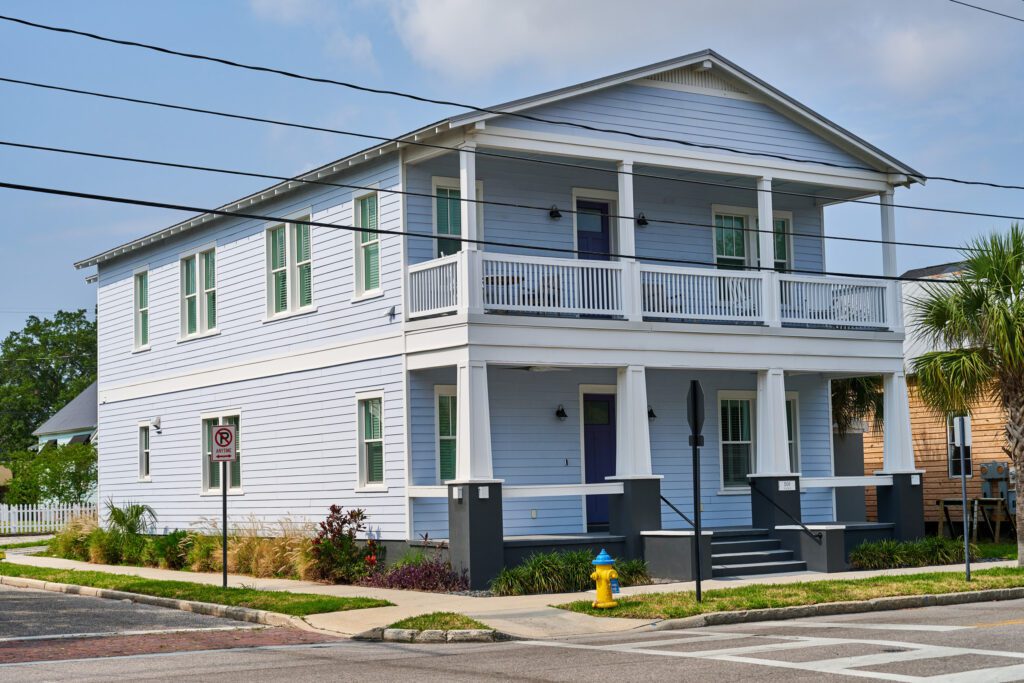Florida Housing Market Faces Potential Downturn: Key Insights
As Florida’s housing market grapples with a notable slowdown, recent data reveals that three metropolitan areas are at elevated risk of a potential housing market crash within this year. According to a study by CoreLogic, the cities of Winter Haven, Tampa, and West Palm Beach are classified among the top five markets in the United States facing significant price declines, with probabilities exceeding 70%.
Understanding the Current Situation
Over the last couple of years, Florida’s real estate scene soared, fueled by an influx of buyers relocating from other states. However, this trend has dramatically shifted, leading to a backlog of unsold inventory. Here are the key factors affecting Florida’s housing market:
- Decreased Influx of New Residents: After pandemic-induced migration, the flow of newcomers into Florida has notably diminished.
- Affordability Challenges: Rising prices and high mortgage rates continue to obstruct many potential buyers from achieving homeownership.
- Extended Listing Times: With many homes lingering on the market longer than expected, sellers are now compelled to reduce prices and offer incentives to attract buyers.
Identified Markets at Risk
CoreLogic pinpointed five U.S. metropolitan areas most susceptible to housing price drops. Florida markets among these include:
-
Winter Haven, Florida
- Year-over-Year Price Change: -0.9%
- Price Decline from October 2024 to January: -1.2%
-
Tampa, Florida
[link-whisper-related-posts]- Year-over-Year Price Change: -0.9%
- Price Decline from October 2024 to January: -1.6%
- West Palm Beach, Florida
- Year-over-Year Price Change: -0.5%
- Price Decline from October 2024 to January: -1.2%
Underlying Challenges
These Florida markets share several similar dynamics:
- Cooling Post-Pandemic Demand: Tampa, which once thrived due to new construction, is now facing reduced demand. Issues such as rising homeowners association fees and soaring property insurance costs, compounded by the threat of natural disasters, are stifling potential buyers’ financial capabilities.
- Economic Pressures: Winter Haven’s recent price surge during the pandemic seems to be correcting as the market cools. High property costs and insurance expenses are significant concerns.
- Natural Disaster Risks in West Palm Beach: The coastal region poses substantial risks from hurricanes and flooding, which seem to be influencing buyer sentiment and market activity negatively.
Expert Insights
Selma Hepp, Chief Economist at CoreLogic, indicated that:
"Flattening home price changes over the last six months suggest further price deceleration is ahead. More importantly, compressed monthly changes highlight the general lack of homebuying demand that continues to characterize the current housing market."
She elaborated that considerations such as harsh winters, significant natural calamities, and decreasing consumer confidence contribute to prospective buyers’ hesitations amid ongoing economic uncertainties. Nevertheless, recent improvements in mortgage rates might reinvigorate interest during the upcoming spring homebuying season.
What Lies Ahead?
CoreLogic analysts anticipate that price growth in Florida will likely continue to stall throughout 2025. However, as mortgage rates trend downward, there’s potential for an uptick in buyer activity as spring approaches.
Summary of Key Takeaways
- High Risk Areas: Winter Haven, Tampa, and West Palm Beach are significantly at risk of a housing market crash.
- Market Dynamics: A mix of reduced buyer demand, inflation anxiety, and rising living costs affect ongoing transactions.
- Future Perspective: Potential stabilization could emerge if mortgage conditions improve, sparking renewed interest in home purchases.
For more insights on the housing market trends, you may refer to CoreLogic for comprehensive data and analyses.
By keeping an eye on these developments, interested parties can make informed decisions regarding Florida’s real estate landscape amid these shifts.


